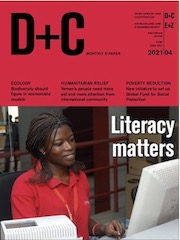Dr. Boro Baski
For the Santals, an Adivasi community in eastern India and Bangladesh, herding is traditionally a way to teach the young generation values and rules. School education is becoming ever more important however, and herding is becoming economically unviable. […]
Moreover, they play the flute and sing, and they share stories and incidents with the children. In the evening before they return to their villages they roast meat and share the collected items.
A the age of 15 or so, the children slowly leave the herding group and shoulder family responsibilities at home. Boys join male members in the field work, in repairing their house, making baskets, fishing, making musical instruments or bullock carts. Adolescent girls join their mothers or elder sisters to collect firewood or vegetables from the forests and fields. When they marry, they leave their homes and start a new family. […]
My personal experience
In my childhood, there was no school for our village. We did not have a clock either. Our life’s rhythm was controlled by the daily movement of the sun and attuned to the seasonal cycles. The children of my generation learned a lot in our herding days, including the names of birds and animals, their songs and sounds, their timing of laying eggs or giving birth. We were taught to work as a team, and we developed a sense of democracy and gender. Moreover, we experienced friendship.
Our seniors taught us how to swim in the pond and river or how to climb on trees. We learned to play traditional flutes and stringed instruments – and how to make them from local materials. We had a happy-go-lucky life, and we were proud to carry forward the legacy of wisdom and knowledge of our ancestors through our oral tradition.
This life, however, did not last long for me. An uncle of mine convinced my family to send me to a boarding school run by Christian missionaries in a town near Kolkata. I did not want to go. I cried and struggled and even hid in the bushes for a day, but in the end, I had to leave my village. My uncle insisted that I must not come home at all so I would not “stay a Santal forever”.
When, at last, I returned home after ten years, I found myself an alien among my own people. I speak the Santal language with a strange accent. I had grown accustomed to electricity, the toilet and indoor games moreover. I had also become conscious about health and hygiene – and the relevance of clocks.. […]
Basanti Mardi is a middle-aged Santal mother who was a herder in her early age and only went to school up to class four. Her school years were good for her. She says: “When I go to the market, I can read signs and count money, and I could get small jobs in town if I needed to.” She sent her own two children to school, and her son is actually a university student today. His mother expresses the conviction that “education is progress”. […]
Economic development is a huge challenge for Santals. It is quite clear that herding does not do much to secure our livelihoods today and will not do so in the long run. However, we cannot be expected to get alienated from our tradition and cultural moorings. Giving up herding altogether would affect our sense of community and identity. […]
Source: Why herding matters so much in the culture of the Santals, an Indian Adivasi tribe | D+C – Development + Cooperation
Address: https://www.dandc.eu/en/article/why-herding-matters-so-much-culture-santals-indian-adivasi-tribe
Date Visited: Fri Jun 12 2015 17:10:51 GMT+0200 (CEST)

Related posts >>
Dr. Boro Baski works for the community-based organisation Ghosaldanga Adibasi Seva Sangha in West Bengal. The NGO is supported by the German NGO Freundeskreis Ghosaldanga und Bishnubati. He was the first person from his village to go to college as well as the first to earn a PhD (in social work) at Viswa-Bharati. This university was founded by Rabindranath Tagore to foster integrated rural development with respect for cultural diversity. The cooperation he inspired helps local communities to improve agriculture, economical and environmental conditions locally, besides facilitating education and health care based on modern science.
He authored Santali translations of two major works by Rabindranath Tagore, the essay “Vidyasagar-Charit” and the drama Raktakarabi (English “Red Oleanders”), jointly published by the Asiatic Society & Sahitya Akademi (India’s National Academy of Letters) in 2020.
Other posts contributed by Dr. Boro Baski >>
Ghosaldanga Bishnubati Adibasi Trust
Registration under Trust Registration Act 1982
P.O. Sattore, Dist. Birbhum
West Bengal-731 236
India
For inquiries on Santal cultural and educational programs, please contact:
Mob. 094323 57160 or [email protected]
